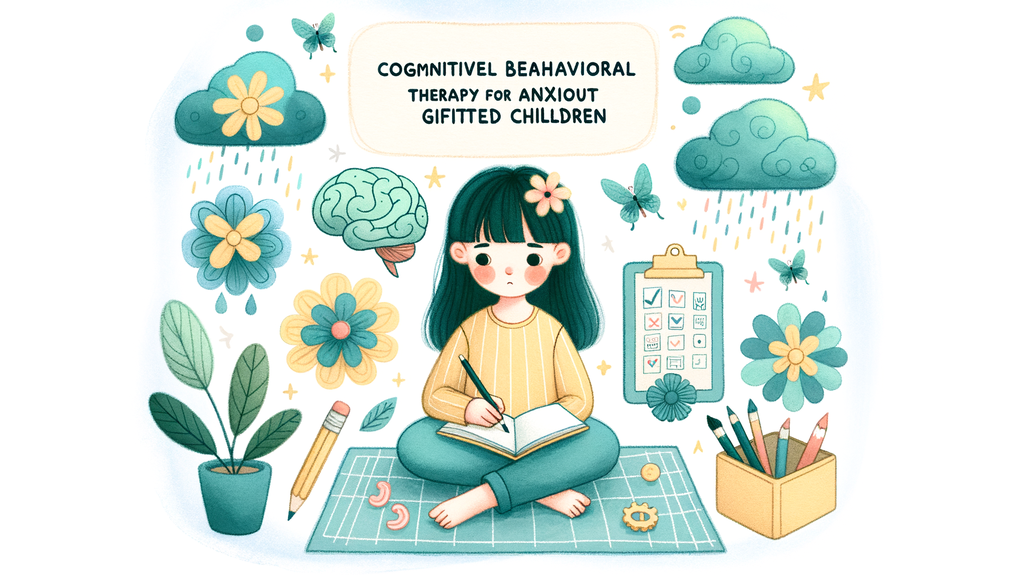Cognitive Behavioral Therapy for Anxious Gifted Children

We’re well aware that giftedness comes with its unique set of challenges. One such challenge is anxiety, often prevalent among gifted children. Cognitive Behavioral Therapy (CBT), a highly effective therapeutic approach, can help these children manage their anxiety. (source)
What Is Cognitive Behavioral Therapy (CBT)?
CBT is a type of therapy that aims to change people’s thought patterns to influence their behaviors and emotions for the better. Unlike other therapy types, CBT focuses on present issues rather than past events.
Now, let’s look at how CBT can apply to your gifted child’s experience.
The Usefulness of CBT for Gifted Children with Anxiety
Gifted children are often more sensitive to their surroundings, demonstrating heightened awareness and emotional intensity compared to their peers. This sensitivity may make them more susceptible to anxiety. Our previous post on emotional sensitivity of gifted children provides a detailed context for understanding this unique gift.
CBT can help these children understand and control their feelings of anxiety. Through techniques such as meditation, journaling, and role-play, children can learn to prevent disproportionate anxiety responses.
What Does CBT Look Like for a Gifted Child?
The application of CBT is individualized. The therapist will work closely with your child to understand their unique challenges and to modify strategies that suit them best. Most importantly, the therapist aims to equip your child with coping mechanisms.
A typical CBT session may involve:
- Identifying Distorted Thinking: The therapist encourages the child to discuss their thoughts and feelings, helping them recognize beliefs that may contribute to anxiety.
- Reality Testing: This phase challenges the fears and anxieties of the child by testing if their fears have concrete evidence.
- Coping Skills Development: The child is taught relaxation techniques, stress management skills, and problem-solving strategies to manage their feelings of anxiety.
For an understanding of various therapy options for diverse learners, you can read this post.
Finding the Right Therapist
Remember, finding the right therapist for your child is a critical component. Look for a therapist with experience in working with gifted children or anxiety disorders. Your school psychologist or pediatrician can often make a good recommendation.
A Cooperative Effort
Your involvement as a parent can play a major role in the success of CBT for your child. By following the therapist’s strategies at home, you can make the process more effective. Engaging in self-care is equally important. We have shared more on this topic in our post on self-care for caregivers.
Lastly, it’s significant to remember that anxiety need not limit your child’s potential. With the right support systems in place, your child can navigate their world confidently and resiliently.